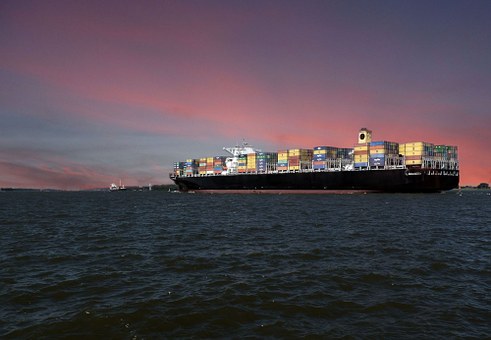18 Nov, 2019
Posted by jeenalogistics
Challenges
Freight Forwarder
Freight Forwarding
Sea Freight
Sea Freight Forwarder
Sea Freight Forwarding
Despite the world’s 90% goods being transported by sea, the sea freight forwarding industry has not been sailing smoothly in recent times. With a global economic slowdown, this industry has also been hit hard. Several mergers, buyouts, alliances, and bankruptcy have been observed dominating the space. So, in a way, financial struggles and losses are seemingly evident in the sea freight forwarding industry.
Let’s delve into the challenges bothering the sea freight forwarding industry currently. Eventually, we shall discuss the commonly faced challenges.
- IMO Cleaner Fuel Mandate — With IMO’s cleaner fuel mandate, the sulfur level in fuel has been advised to be cut down to 0.5% by 2020. The current limit being 3.5%, the transition of culminating to cleaner fuel levels is certainly going to be an expensive affair for the carriers. This will not only be a blow for the carriers but also for the sea freight forwarders, the consequence of which will be an increase in rates. According to industry experts, never before did the sea freight industry experience such a regulatory mandate with potentially disruptive impact. Hence, this mandate has added on to the worries of carriers and sea freight forwarders.
- Trade War — The escalating tariff war between the US and China which is at a ceasefire has increased uncertainty in the sea freight forwarding industry. If a deal is not reached by the deadline, i.e. March 1st, 2020, the US will increase tariffs on approximately $200 billion worth of Chinese goods from 10% to 25%. This will lead to a decreased freight volume. On the other hand, if the tariff war escalates again, the volume of freight will definitely be adversely affected. With challenges like this, the rates of sea freight industry are surely going to shoot up. Keeping the macro-economic trends aside, let’s take a look at the crucial challenges faced by sea freight forwarders.
- Competition — Competition is extremely intense in the sea freight forwarding industry and with the passage of time, it’s simply growing. There are several logistics companies that were not into forwarding or NVOCC type services earlier. However, of late, they have become a part of this game. If sources are to be believed, giants like Amazon are also pondering over getting into the game which if happens, will increase the competition by multiple times.
- Volatility — There’s a lot of instability associated with the sea freight forwarding industry. Due to complicated rates and contracts, this industry cannot be understood by everyone but experts. Understanding the volatile cost structure due to the random nature of surcharges and GRI’s is a complicated process. Therefore, sometimes it becomes challenging for the sea freight forwarders to provide reliable and accurate rates to customers. Although process simplification tops the priority list at the moment yet it’s not going to bring a sign of relief for the freight forwarders anytime soon.
- Commoditization — For a lot of shippers, transportation is a commodity and the primary focus is getting the shipments delivered. They don’t pay much heed to their service or price. At times, their price is so low that it gets difficult for freight forwarders to beat them at their price despite knowing the fact that they can offer better service and new technology improving the customer experience. Some freight forwarders are trying to combat the challenge by devising ways to compete with conventional service providers.
- Rate of Change — The number of changes happening in the sea freight forwarding industry is posing new challenges every day. Ocean carriers forming alliances in large numbers is one of the recent trends that is impacting the rates, contracts of forwarders with the carriers, and services. Change in technological advances affect the way freight forwarding businesses are managed and services are provided. There has been a noticeable change in this front too.
- Management of Tender — Responding to complex tenders is a challenging work for most of the sea freight forwarders. Due to the large volume of the bids and complexity in their nature, resources are drained big time. Therefore, some freight forwarders have made it a point that they work on the improvement of the tender management process in order to emerge successful at accurate and faster bidding.
Thus, it is important for freight forwarders to do smart work. Only then would they survive the intense competition and make themselves distinguishable in terms of services, rates, technology, and customer experiences.


